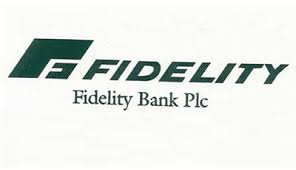GCR affirms Fidelity Bank’s national scale long-term, short-term issuer ratings
[ad_1]
Stories by Chima Nwokoji
| Lagos
GCR Ratings (“GCR”) has affirmed Fidelity Bank Plc’s national scale long-term and short-term issuer credit ratings of A(NG) and A1(NG) respectively, Outlook revised to Positive.
According to the agency, the ratings affirmation reflects Fidelity Bank Plc’s sustained growth and positive earnings trajectory, well-contained risk position, and a highly stable funding structure.
The Positive Outlook is driven by expectations of an improved capital and risk position for the bank relative to peers in the market over the rating horizon.
It noted that Fidelity has maintained its strong growth trajectory with a good and stable earnings profile.
With a balance sheet size of N3.3 trillion as of December 2021, Fidelity has the highest market share outside of the top five banks in the Nigerian banking sector. “The bank has a focus on core banking in the Nigerian market, although that position is expected to evolve in the near term, given the recent acquisition of a UK banking subsidiary to drive offshore lending and the bank’s trade finance offerings.
“We expect Fidelity to maintain its growth trajectory with a focus on diversification in the near to medium term, which bodes well for its franchise strength and market position,” it stated.
Capital and leverage for the bank remain within the intermediate range of GCR’s assessment.
The rating agency further noted that over the past year, Fidelity’s capitalisation metrics have remained relatively stable, with the capital adequacy ratio (“CAR”) improving to 20.1percent as at December 2021 from 18.2percent as at December 2020.
The bank’s GCR core capital ratio is expected to register at 17percent+ over the rating horizon, factoring in moderate risk-weighted assets (“RWA”) growth and historic dividend payout levels. Fidelity’s capital position is expected to be supported by good levels of internal capital generation over the next 12-18 months.
According to GCR, Fidelity has maintained relatively low credit losses through the cycle, averaging 0.8percent over the review period, which is significantly below the market.
Similarly, non-performing loans (NPL) have been contained below the five percent tolerance limit, and have maintained a downward trend, from 3.8percent as at Financial Year 2020 (FY20) to 2.7percent at first half 2022(1H22).
“Sectoral distribution of the loan book is considered good, with the largest sector – oil and gas, contributing a relatively moderate 26.1percent of gross loans at FY21 (FY20: 22.6percent) which compares well to peers in the market.
However, there is counterparty concentration, as the top twenty loans accounted for 43.2percent of the loan book at FY21 (FY20: 47.2percent).
Also, restructured loans constitute a sizable 22 percent of the loan book, including some of the largest exposures.
It observed that funding and liquidity assessment is a rating positive, reflecting the bank’s highly stable funding structure. Behaviourally sticky customer deposits dominate the bank’s funding base, contributing over 80.3percent through the review period.
ALSO READ FROM NIGERIAN TRIBUNE
“The Positive Outlook hinges on the expectation that Fidelity’s proposed N10 billion equity injection as well as its internal capital generation relative to the projected growth in RWA would likely uplift our assessment of the bank’s capital position.”The bank’s credit losses and NPLs are also expected to remain significantly better than peers in the market in the near term. Such developments will likely result in a rating upgrade,” it stated.
On Rating Triggers, the agency said an upward movement in the rating will be triggered by an improvement in the GCR computed core capital ratio to register at the 20 percent level in the near term.
The capital position is expected to be largely unaffected by the potential restructuring costs associated with the recent acquisition of the UK subsidiary.
“We would also expect to see credit losses and NPLs maintained well below the market average while averting adverse credit migration of the restructured facilities.
“The outlook will revert to stable if Fidelity’s capitalisation is weighed down by the acquisition of the UK subsidiary and/or if the credit losses and NPLs increase,” the GCR report noted.
[ad_2]















Post Comment